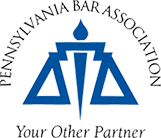You knew that when you obtained your Pennsylvania driver’s license, you agreed to submit to a breath test if a police officer requested it. When an officer pulled you over on suspicion of drunk driving, you knew that refusing to take the test would come with consequences.
You never expected that the test would say your blood alcohol concentration was .08 or higher. Perhaps you had a couple of drinks with some friends on your way home from work, but you never thought you were legally drunk. The breath test provides you and the officer with evidence of your impairment, and the officer places you under arrest. That’s the end of the story. Right?
Surprise! Breath tests aren’t always accurate
A number of factors could affect the accuracy of a breath-testing machine. Some of the most common include the ones below:
- If an officer does not have the proper training or makes a mistake while using the device, it could give a false reading.
- If you used a breath freshener or mouthwash before driving, the alcohol from those products could cause an inaccurate reading. Numerous foreign substances can make the results of a breath test unusable.
- Substances in the air such as fumes from varnish or paint also wreak havoc on breath-testing machines.
- Breath-testing machines use software just like other electronic devices, and that software could contain glitches or bugs that prevent accuracy.
- In order to reach an accurate result, it is necessary to perform the test multiple times.
- Breath-testing machines require periodic calibration to maintain accuracy.
- Something as simple as dying batteries can also affect results.
As you can see, it’s a mistake to automatically believe that the results of your breath test were accurate and would stand up to scrutiny. If any of the above circumstances existed at the time of your testing, your instinct that you were not impaired may be correct.
What to do now
If this many potential problems exist with just one of the methods police officers use to develop probable cause for a DUI arrest, imagine what you could learn about the supposed accuracy of field sobriety tests. It’s never a good idea to simply plead guilty to a DUI.
Even if it’s considered a misdemeanor, you could face penalties. In addition to any punishment the court orders, a conviction (which is what a guilty plea results in) could create adverse consequences on your personal and professional lives as well. It may be worthwhile to challenge the charges in an attempt to minimize the impact the arrest has on your life.



